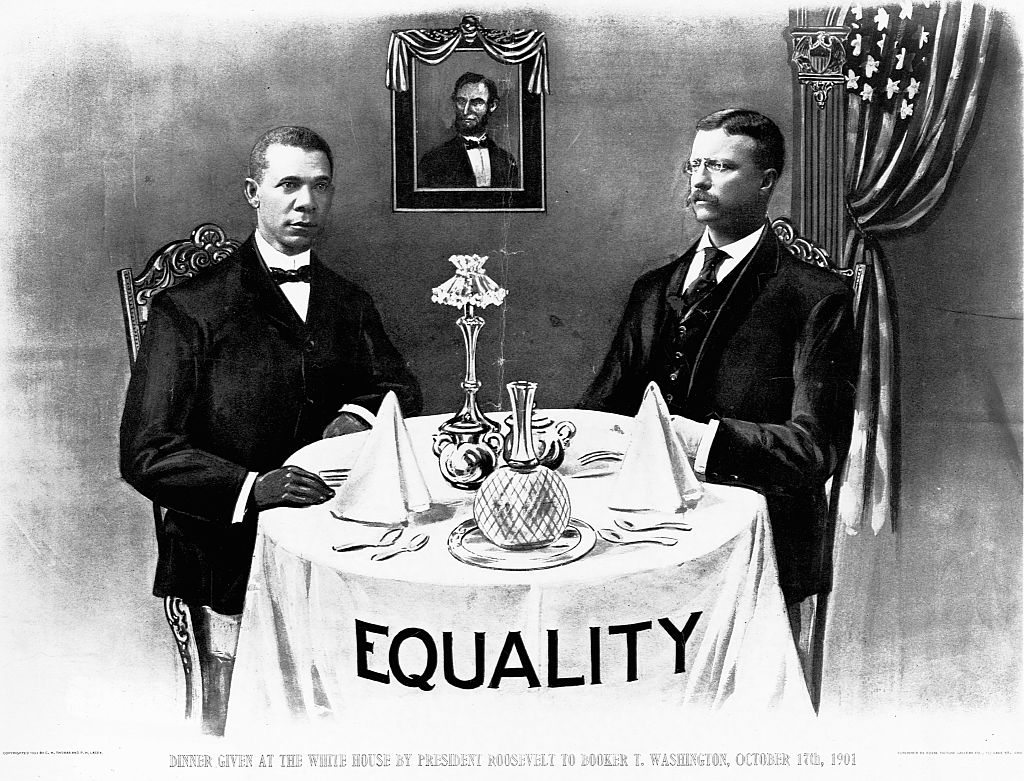No future awaits those who rage against family, work, and community.
Reflection, Not Reckoning, On Race

We can’t speak rightly of justice if we’re too crazy and exhausted to think straight.
There has been a lot of talk of a “racial reckoning,” though it’s really more like an oversaturated, hyper-aggressive, obsessive fixation on race than a reckoning. Race relations are at a low point, and the “reckoning”—a term that evokes “showdown” or a settling of scores—resembles a disgruntled, dysfunctional family quarrel.
But the climate has created an opportunity for a “racial reflection.” Rather than an action that is forced on someone or punishment being meted out, this reflection could allow us to pause and think about issues of race—both past and present—honestly, holistically, and in context. It also allows us to think about the ramifications of our actions before we take steps that will irrevocably damage race relations and the country.
Much of what we hear about race is geared toward whites—what harm whites have done and what whites need to do to fix it. The problem is that for an issue so centered around black people, little is mentioned about what blacks are doing now or how they can affect racial change. These answers will never come from a focus on whites.
For blacks, looking within is hard. Some are so angry with whites that they cannot think about anything else. Some encourage the community to get its house in order before pointing fingers, and they get charged with victim-blaming and ignoring the “root cause”—i.e., whites—and the cycle continues. As someone keenly focused on finding solutions to difficult problems, this pains me. How can a topic be so ubiquitous yet see virtually no progress?
Some independent black thinkers want to move beyond the stale talking points of either blaming whites or demanding more personal responsibility from blacks. But how do we even define “blackness” without falling into the old trap of essentializing race?
Some commenters, like Kmele Foster and Thomas Chatterton Williams, believe the answer is to abolish race. Others take a more nuanced approach. Jason Hill, professor of philosophy at DePaul University, recently wrote a piece for The American Mind which included an excerpt from his upcoming book, What Do White Americans Owe Black People. He opens the article by stating, “The fabricated black race should never have been born.” This sounds like the familiar anti-racist argument that “race is a social construct.” But Hill is making a different case, somewhere between the abolitionists and the anti-racists.
Hill is not rejecting the term “black.” I believe he’s saying not to cling so closely to it so as to make it the most important part of your identity. For example, I identify as a conservative. I don’t think it’s a very good descriptor, but people often ask, and I can’t make up a term no one would understand so for ease of conversation, I say “I am a conservative.” However, I am not defined by it. I believe this is the point Hill is making: “blackness” can persist as a secondary or tertiary characteristic—the same way many Irish-Americans or people who crochet define themselves partly through their ethnicity or pastime—without making it the singular focus of one’s existence.
Leftist anti-racists, on the other hand, like to have it both ways. They rightly say that race is a social construct but rather than rejecting it, they slather their blackness on like a protective balm. To them, race is fake but everything is racist.
Hill makes a strong point about pride. As I wrote in my book, We Want Equality, I never understood having intense pride in something you had no control over. When members of the LGBTQ community speak of pride in this way I wonder what they’re proud of. Here, Hill argues that blacks are proud of an identity they were given—by people who were oppressing them—and a land to which they have no connection. When he said that they have, “…fantasies of an ancient Egyptian civilization none of them are tied to ancestrally,” I nodded in agreement, hearing echoes of “We were kings.” Well, some of us may have been…but plenty of us were peasants.
Hill also notes that race consciousness generates empirically false beliefs about the moral and metaphysical status of individuals based on general characteristics. People who prioritize race view it as an asset, something with immeasurable value. When one has such a high view of his race, it is natural for him to see inferiority in those who lack this priceless commodity.
There are obviously independent thinkers, not on the Left, who disagree with Professor Hill’s view. I recently interviewed David Sypher, founder of the New Jersey Black Republican Club. He believes the best path to improving the country is to combine conservatism with a specific focus on racial issues. Where I begrudgingly identify as a conservative, he—and others like him—identify as black conservatives.
Groups like the Frederick Douglass Foundation, Project 21, and the Martin Luther King Republicans are all deeply focused on conservative values like faith, family, and individual freedom, yet they are also, in the words of Black Lives Matter, “unapologetically black.” It is likely that many of them would disagree with Professor Hill’s assertion to “terminate your need to see blacks as blacks.” Lester Cahill offered one such rebuff.
In his American Mind article, Cahill took Hill to task for suggesting that blacks become a “raceless people” and for omitting the fact that black Americans have no tribal affiliations. While I agree with Cahill’s assertion that we are “Americans foremost,” and also questioned Hill’s argument that blacks have “given up their sovereignty and autonomy,” I believe there’s a subtle inference we may be missing. I believe Hill’s key point – and the thing he’d most like to see us renounce – is our racial internalization. He’s not saying abolish it, he’s saying we shouldn’t let it define us.
He uses phrases like “establishing societal configurations that require them to prove their blackness” and “an appeal to their blackness as a legitimizing referent from which to both interpret and make sense of their humanity.” In this respect I agree. I believe Hill is asking us to keep the moniker “black” but avoid letting blackness form our self-image and consume our identity. Whatever your take, Hill’s argument invokes deeper thinking and takes us beyond the one-note tune of harping on systemic racism into the abyss.
This is the perfect time for a robust, nuanced conversation about race. But for that to happen, we need diverse opinions to be heard. There is obviously an increased interest in race but the diet we are being served is toxic and does a disservice to the cultural climate.
Ibram X. Kendi, Robin DiAngelo, and Isabel Wilkerson released books about race and were lauded. They are ushered into the halls of academia and corporate boardrooms to impart their wisdom. But this is not a real conversation about race. It’s more of a one-sided diktat making accusations and barking demands. Any hesitancy to comply is tagged as evidence of white fragility, internalized inferiority, and racism. There is a void of intelligent discourse and people are starting to notice. You can’t, after all, fool everyone all the time.
The New York Times recently published an article highlighting books from David Horowitz, Mark Levin, and other contrarian thinkers; among them my upcoming book Race Crazy. Somehow, I don’t think these books will get the fanfare that Kendi and DiAngelo’s books received. While some with large, mostly conservative, platforms, like Mark Levin and Candace Owens, sold extremely well, they are not invited to speak on race outside of conservative friendly outlets. Kendi and DiAngelo get to discuss race at universities and large corporations like Google and Coca-Cola.
For there to be an honest conversation about race, we need broader points of view expressed on the national platform. We can’t address issues of race with a singular focus on white guilt and responsibility, an oppression-based focus on blacks, or with demands issued as ultimatums from a hostage taker. The conversation around race in America has become exhausting and many have simply tuned out. Perhaps they’d would be more receptive to a reflection on race, rather than having a “reckoning” forced upon them.
The American Mind presents a range of perspectives. Views are writers’ own and do not necessarily represent those of The Claremont Institute.
The American Mind is a publication of the Claremont Institute, a non-profit 501(c)(3) organization, dedicated to restoring the principles of the American Founding to their rightful, preeminent authority in our national life. Interested in supporting our work? Gifts to the Claremont Institute are tax-deductible.
Renouncing race is the answer to restoring our humanity.
African Americans are under no obligation to renounce their black identity.



